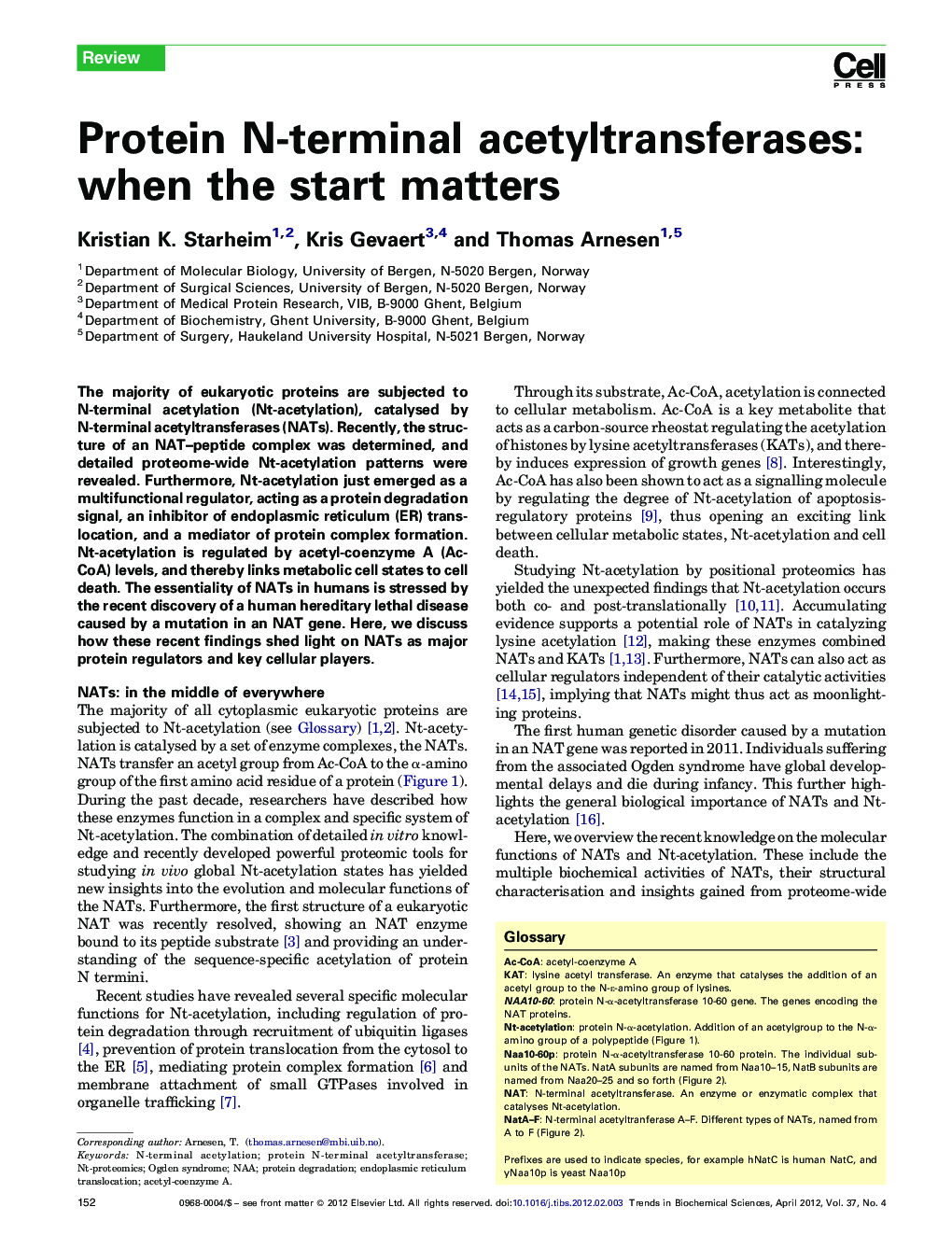| Article ID | Journal | Published Year | Pages | File Type |
|---|---|---|---|---|
| 2030845 | Trends in Biochemical Sciences | 2012 | 10 Pages |
The majority of eukaryotic proteins are subjected to N-terminal acetylation (Nt-acetylation), catalysed by N-terminal acetyltransferases (NATs). Recently, the structure of an NAT–peptide complex was determined, and detailed proteome-wide Nt-acetylation patterns were revealed. Furthermore, Nt-acetylation just emerged as a multifunctional regulator, acting as a protein degradation signal, an inhibitor of endoplasmic reticulum (ER) translocation, and a mediator of protein complex formation. Nt-acetylation is regulated by acetyl-coenzyme A (Ac-CoA) levels, and thereby links metabolic cell states to cell death. The essentiality of NATs in humans is stressed by the recent discovery of a human hereditary lethal disease caused by a mutation in an NAT gene. Here, we discuss how these recent findings shed light on NATs as major protein regulators and key cellular players.
